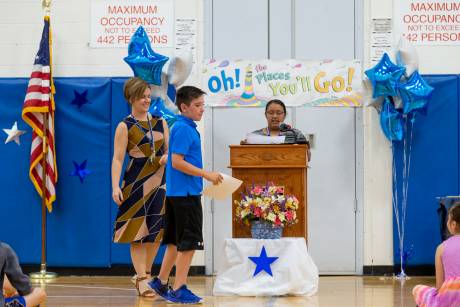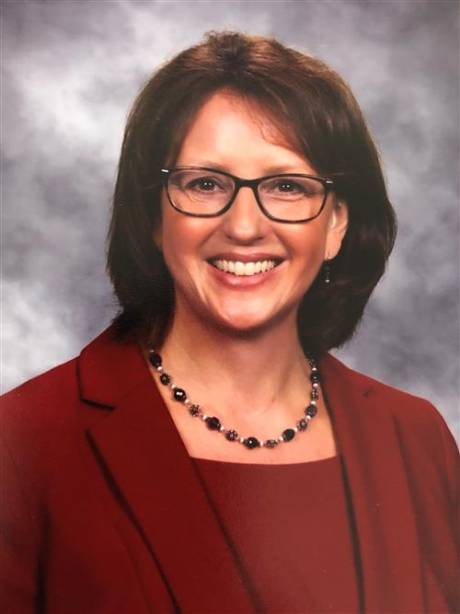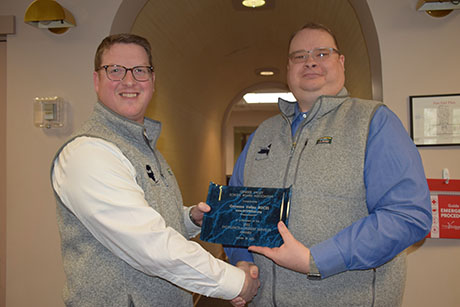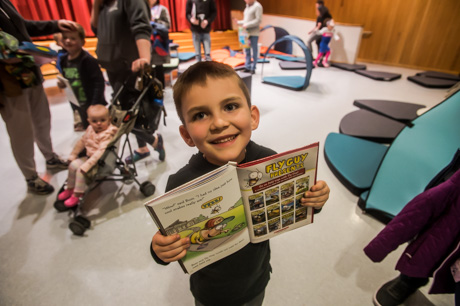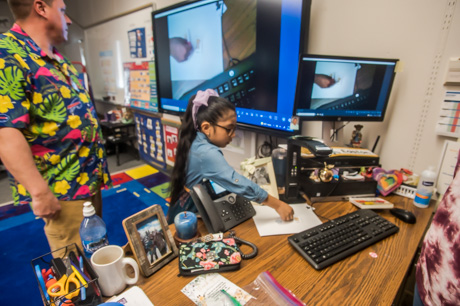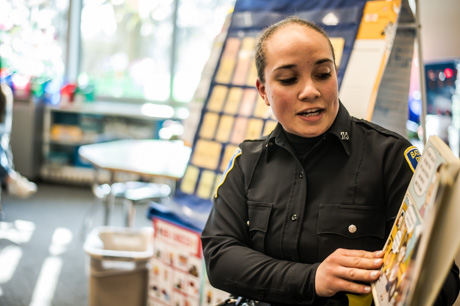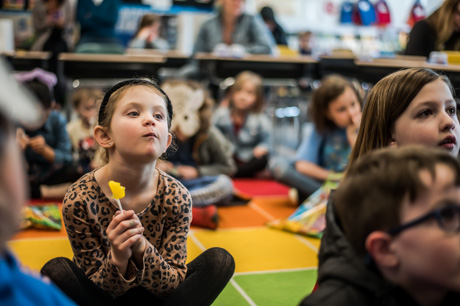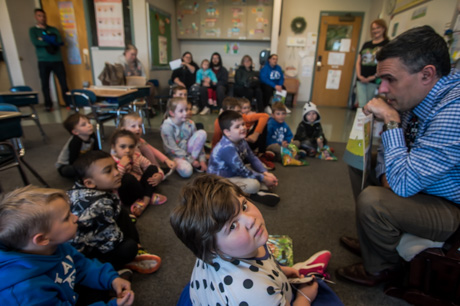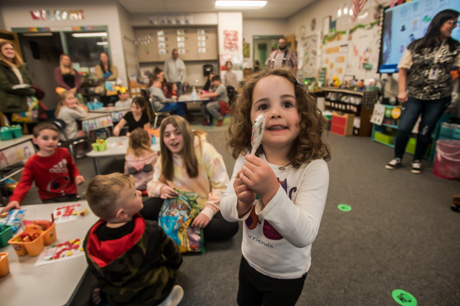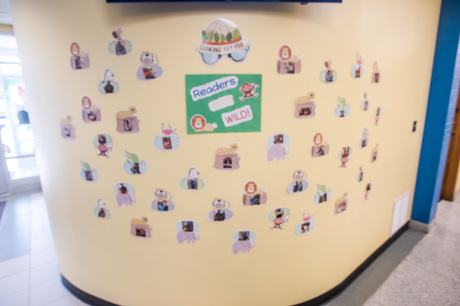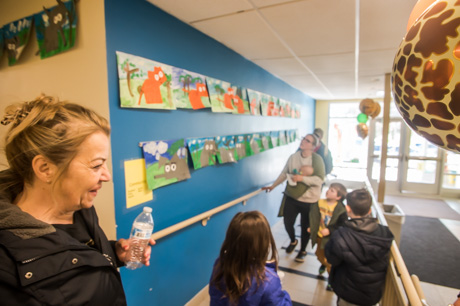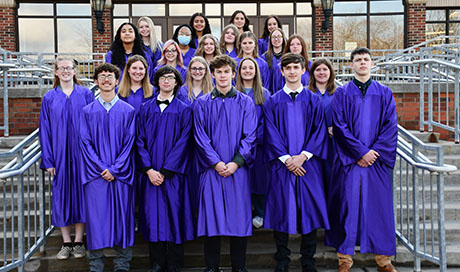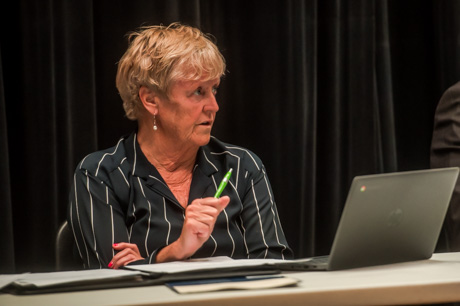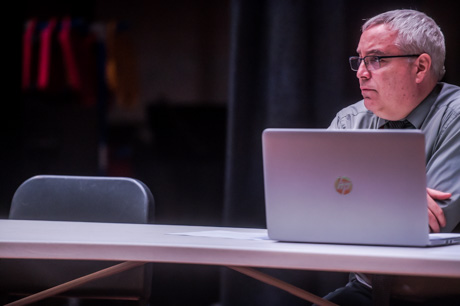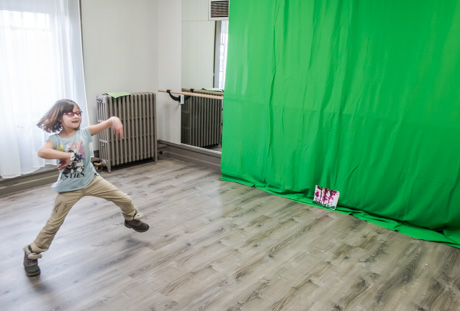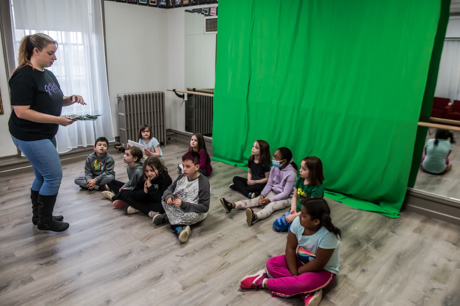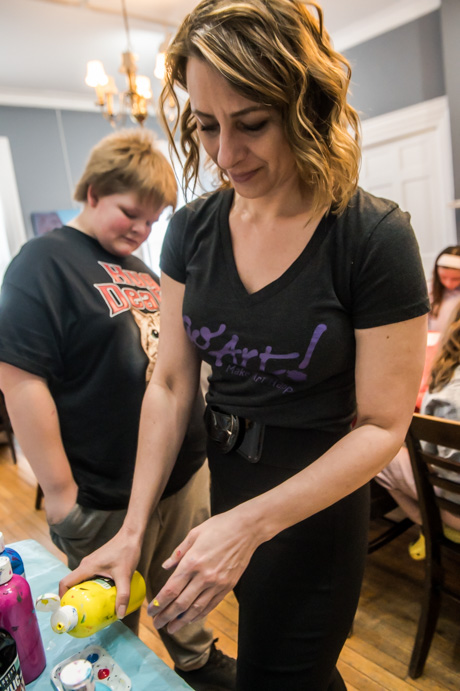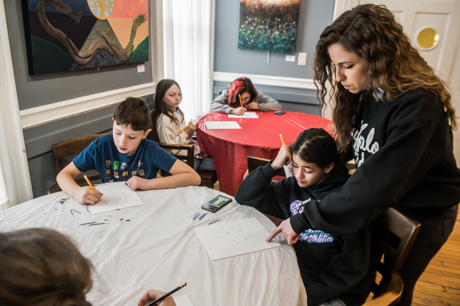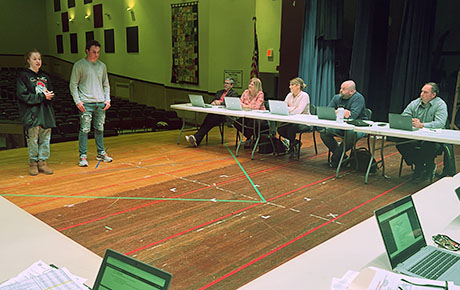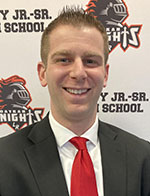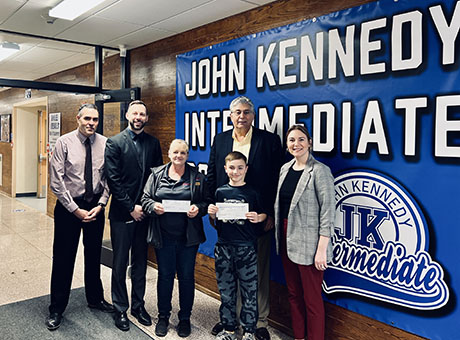Le Roy voters asked to select three trustees from four candidates, vote on budget
Four people are each vying for one of three trustee seats on Le Roy Central School's Board of Education during Tuesday's school budget vote.
The two candidates with the most votes will be elected to the two three-year terms that are open, and the candidate to come in third will fill the remaining two years on the other available seat.
The four candidates are Peter W. Loftus, Randa Williams, Jason Karcher, and Rachael Greene.
Also on the ballot is the district's $27,708,988 spending plan. Voters are being asked to approve a $10,663,025 tax levy. In-district property owners in Pavilion, Bergen, and Caledonia are looking at a projected tax rate of $19. Property owners in the Town of Le Roy pay the same rate they did this year, $24.14. For further explanation of the tax rates and budget, see The Batavian's previous coverage: Le Roy trustees support $66,000 tax levy increase, still lowering tax rate for property owners with assessment adjustments
During the May 10 school board meeting, the four candidates were given time to introduce themselves:
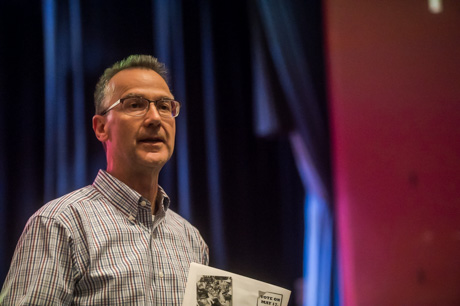
Peter W. Loftus
Loftus has served on the school district board for six years and is seeking a third term. He is married to Tammy and they have two children.
He is an engineering manager at RL Kistler Inc.
"Kistler places a real high value on their employees giving back to the community and providing service wherever they can," Loftus said. "This has allowed me a lot of flexibility to get out of work when I need to, to get back here for any committee meeting, interview negotiations, anything like that that takes place in the normal working hours. My work is really understanding about that and provides me with that opportunity."
He said he learned two things when he first started on the school board.
"The first thing that I learned is that it's just a massive operation," he said. "The running of this district is all the fast-moving parts. Everything's changing all the time. People are leaving. It's a natural path for people to come and go. So you're always filling slots. It's just the way it is.
"And the other thing that I learned -- and this is the biggie -- that they care; the education, and the life preparation of every student in this district, is what drives everybody here."
Six years ago, when he showed up at the Jr./Sr high school to participate in his own children's educations, he picked up a positive vibe just walking around the hallways. Loftus said, and he decided he wanted to be a part of it, so he decided to run for a seat on the board.
"Now, I do understand a lot of the challenges, and there are many things we need to do to be better," Loftus said. "It's not just a happy place where that vibe is going all the time. There are underlying issues. There are things that we need to improve."
And Loftus wants to help guide that improvement, he said, and his experience will prove to be an asset.
"My six years on the board equips me with some experience and some tools to be a more effective, more impactful board member," Loftus said. "I really look forward to putting that experience to use in a third term."
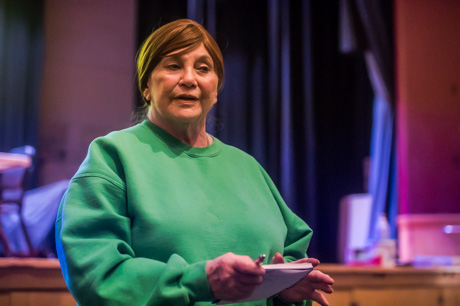
Randa Williams
Williams, a mother, grandmother, and great-grandmother of Le Roy students, started her involvement with the Le Roy Central School District when her daughter entered kindergarten in 1976. She served on the PTSO and helped get the first playground built, and then a second.
She's been involved with Girl Scouts for 66 years.
"I think that the most important thing is to be involved in your community," Williams said. "I think that's what brought me here."
She thinks more people should get involved with their local schools.
"In a case like this, if you're involved, you know what's going on in your school. And it's very important what's going on here," she said.
Williams said she is excited to get more involved with the district through a seat on the school board.
"I'm very interested in what's going on and I would like to be involved in it," she said.
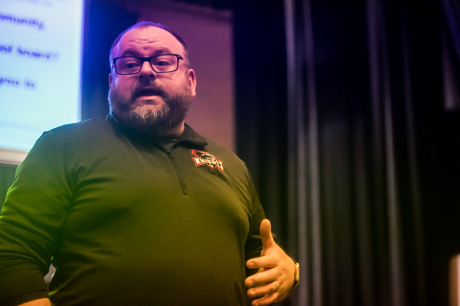
Jason Karcher
Part of what brought Karcher to Le Roy is that he married a young lady from the community and they both wanted a place with a strong sense of community and family.
The Buffalo native arrived four years ago and immediately got involved. He joined the Le Roy Rotary Club and is now set to become president-elect in July. He's also been involved with the PTSO.
"One of the big things for me was about (finding) some place that I could actually dig in, get my hands dirty, and be a part of something that was larger than myself," Karcher said. "When we made the decision, it wasn't a foregone conclusion about where we would go, but it presented itself really quickly that, with family here, and with all the opportunities that are available here, to be able to come back here and (get involved)."
He and his wife Shannon have a daughter and it was his daughter's love of softball that got him even more involved in the community.
"About two years ago, we had a huge opportunity where there was going to be no softball, there's gonna be no community of girls softball," he said. "That was a big thing for our daughter to make sure that ( girls softball) could continue on. So Shanna and I jumped in and we formed a 501(C)(3) and got it off the ground, and in two years. Now we have over 100 girls playing softball again here in the community, which we think is fantastic, and we're really excited about it."
The level of involvement led to Karcher being appointed to a vacant seat on the school board.
He works for Apple as an employee relations specialist.
"For me, it's about involvement," he said. "One of the things I would call out is, this is our budget meeting, this is where people could come in and actually get to know our candidates. And this is what we have to write (motion it the largely empty auditorium). And I'll call out, why aren't there more people here? That bothers me. So that's one of the big things, if ever voted on to the school board, is wanting to make a commitment that we need more people here."
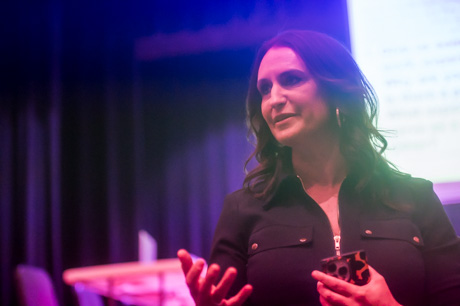
Rachael Greene
Greene enters the race with more than two decades of experience in education. She started her career as a teacher in her hometown of Warsaw before becoming a principal in Mount Morris. She was an instructional coordinator for BOCES (a position her husband, Peter, now holds) before becoming superintendent of the Stanley G. Falk School, which is a NYS-approved special day school that provides educational programming for students aged five to 21 who have special learning, social, and emotional needs.
"We have 600 students," Greene said. "We're the largest special education school in New York State -- seven locations and (there are) 44 different districts that we collaborate with. So when I think about what I could bring to the board, I think there's some insight and perspective in the fact that I've been able to sit in many of your positions within the district, not this district, specifically, but in a school system, and understand the roles that each of you plays to make decisions on what's best for kids. But also the perspective of being able to say, wow, you know, 44 districts, what are they doing with this?"
She said she wouldn't see her role as another superintendent in the district, a role Merrit Holly currently fills.
"I think there's some value in being a thought partner at the table with the board," said Greene, a life-long resident of Le Roy. "In my experience, the other piece I think I would bring to the board is I'm a huge advocate for underrepresented students. When I look at our community of Le Roy and youth, and look at where we were 20 years ago, our poverty levels amongst our families and our students coming through our doors hovered around 10 percent. That trend line has done nothing but grow, where we are at almost 40 percent of our students that come into our school buildings living in poverty every day."
The Greenes have three children going to Le Roy schools, including Andrew, a ninth-grader who attended the meeting with his mother.
"I have a lot of confidence that he also will be in some form of leadership because he's class president, and now president of the Junior Honor Society," she said. "So I'm super proud of that. I think it's important for me as a parent to also model that when you're passionate about something, you want to have a seat at the table. So I'm super proud. He's here to support me."
Greene said she would serve to support educators and see that both instructors and students -- especially those coming from poor families -- get what they need to succeed.
"I can tell you that our teachers in this district and our staff work so hard to do what's best for kids every day," Greene said. "So, as a board member, I'd want to think about what can we do, not just instructionally, but structurally to provide for what every kid needs in this district. Because the sad part is that two-thirds of those 40 percent don't pass the state exams. That tells me that there's a big gap there and it's our obligation, my duty, I would feel as the board member, and all of ours, to really look at what can we do to break down those barriers for kids every day."
Photos by Howard Owens.

